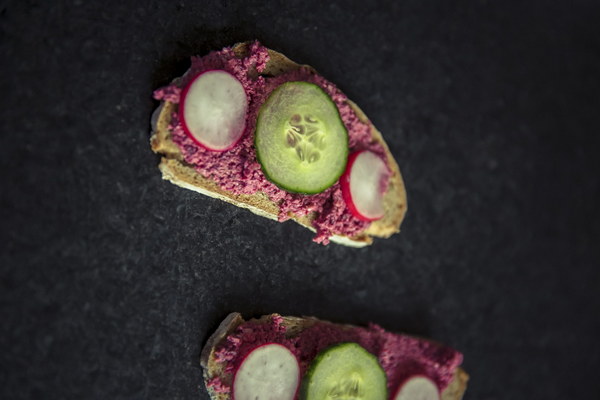Postpartum Body Care A Comprehensive Guide to Rejuvenate and Revitalize
After the joyous experience of giving birth, it's essential for new mothers to focus on postpartum body care to regain their health and vitality. The body undergoes significant changes during pregnancy and childbirth, and proper care is crucial for a smooth recovery. This article provides a comprehensive guide to postpartum body care, covering various aspects that will help you rejuvenate and revitalize your body.
1. Nutrition and Hydration
A balanced diet is essential for postpartum recovery. Focus on consuming a variety of nutrients to support your body's healing process. Include foods rich in protein, such as lean meats, fish, eggs, and dairy products, to help repair tissues. Incorporate iron-rich foods, like leafy greens, beans, and lean meats, to combat anemia, a common issue among new mothers. Additionally, consume calcium-rich foods, like milk, cheese, and fortified cereals, to strengthen your bones. Don't forget to drink plenty of water to stay hydrated and aid in the healing process.
2. Rest and Sleep
During the postpartum period, it's essential to prioritize rest and sleep. Your body needs time to recover from the physical demands of pregnancy and childbirth. Aim for 7-9 hours of sleep per night and take short naps throughout the day if possible. Resting will help you maintain your energy levels and promote healing.

3. Gentle Exercise
Exercise can aid in postpartum recovery by improving circulation, strengthening muscles, and reducing stress. Start with gentle exercises like walking, stretching, and prenatal yoga. Consult with your healthcare provider before starting any exercise routine to ensure it's safe for you and your baby. Gradually increase the intensity and duration of your workouts as your body becomes stronger.
4. Pelvic Floor Exercises
Pelvic floor exercises, also known as kegel exercises, are crucial for postpartum recovery. These exercises help strengthen the pelvic floor muscles, which can become weakened during pregnancy and childbirth. Strengthening these muscles can improve bladder control, reduce the risk of incontinence, and enhance sexual function. Perform kegel exercises daily, holding the contraction for 3-5 seconds and relaxing for 3-5 seconds, with a goal of 10-15 repetitions per session.
5. Skin Care
Your skin may experience various changes during pregnancy and after childbirth. To promote skin health, use gentle, non-irritating cleansers and moisturizers. Avoid products with harsh chemicals or fragrances that can irritate sensitive skin. If you notice any stretch marks or scars, consider using topical treatments or lotions specifically designed for postpartum skin.
6. Mental Health
Postpartum body care extends beyond physical health and includes mental well-being. Take time to nurture your emotional health by seeking support from friends, family, or a postpartum support group. Consider practicing mindfulness or meditation to reduce stress and improve your mood. Don't hesitate to seek professional help if you're experiencing postpartum depression or anxiety.
7. Regular Check-ups
Attend all of your postpartum check-ups with your healthcare provider. These appointments will ensure that your body is healing properly and help identify any potential issues early on. Your provider can also offer personalized advice and support for your specific needs.
In conclusion, postpartum body care is essential for new mothers to recover and rejuvenate their bodies. By focusing on nutrition, rest, gentle exercise, pelvic floor exercises, skin care, mental health, and regular check-ups, you can support your body's healing process and promote overall well-being. Remember to be patient with yourself during this transition period and seek support when needed. With proper care, you'll be well on your way to regaining your health and vitality.





